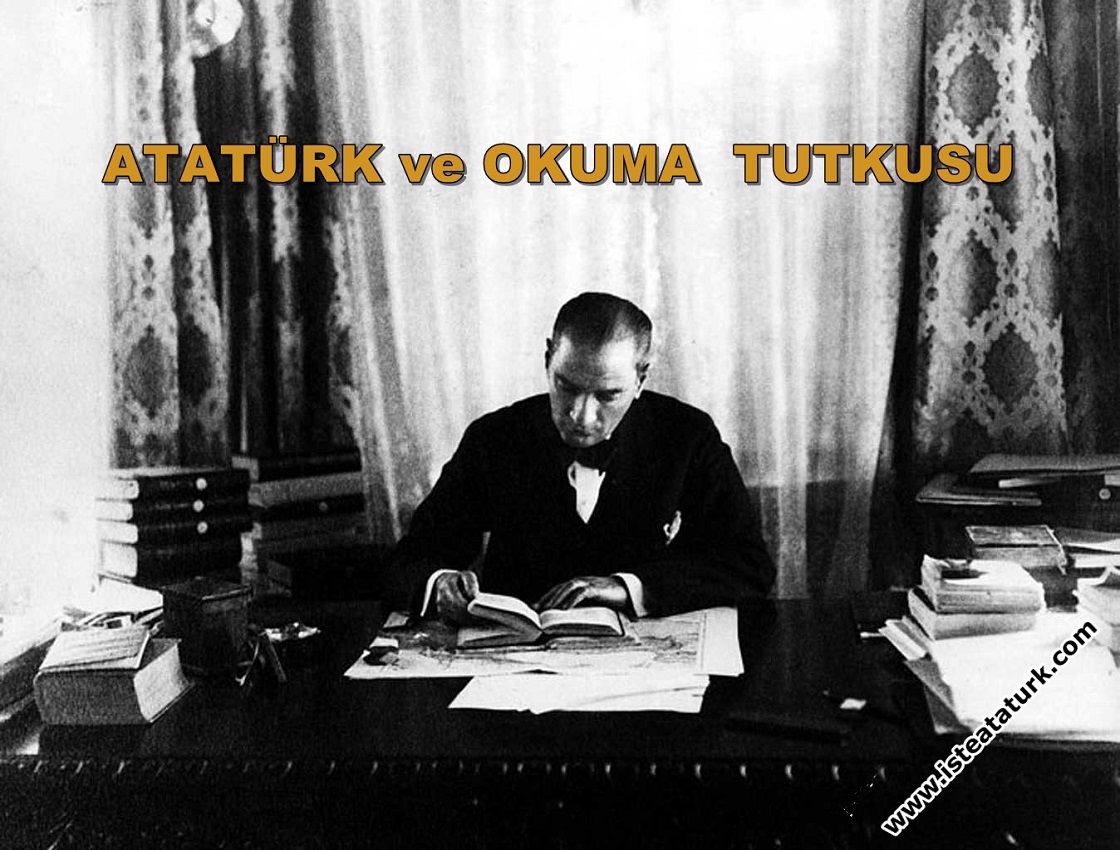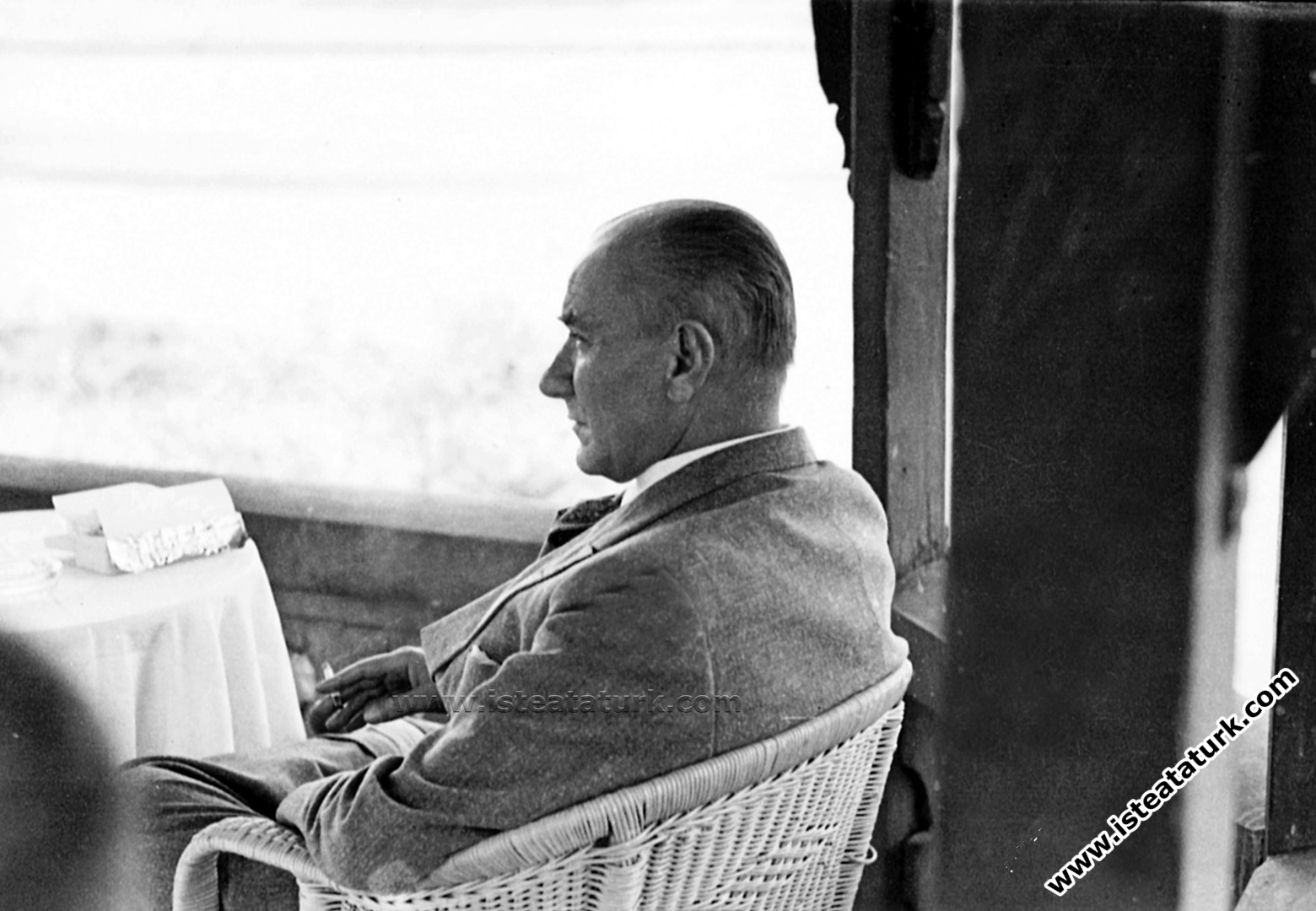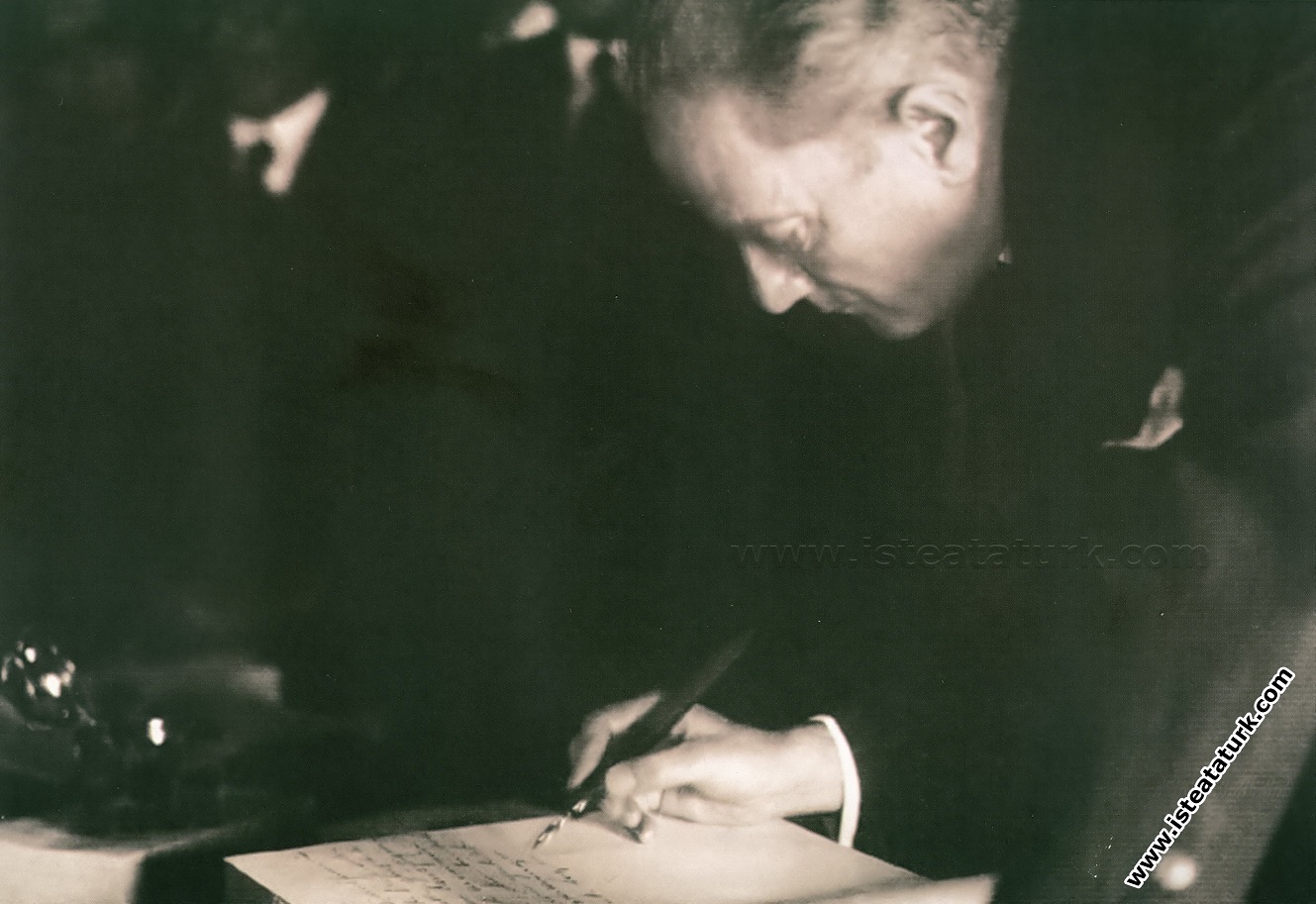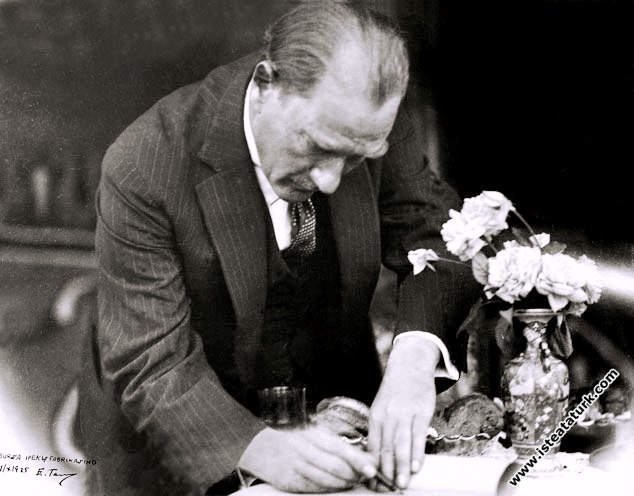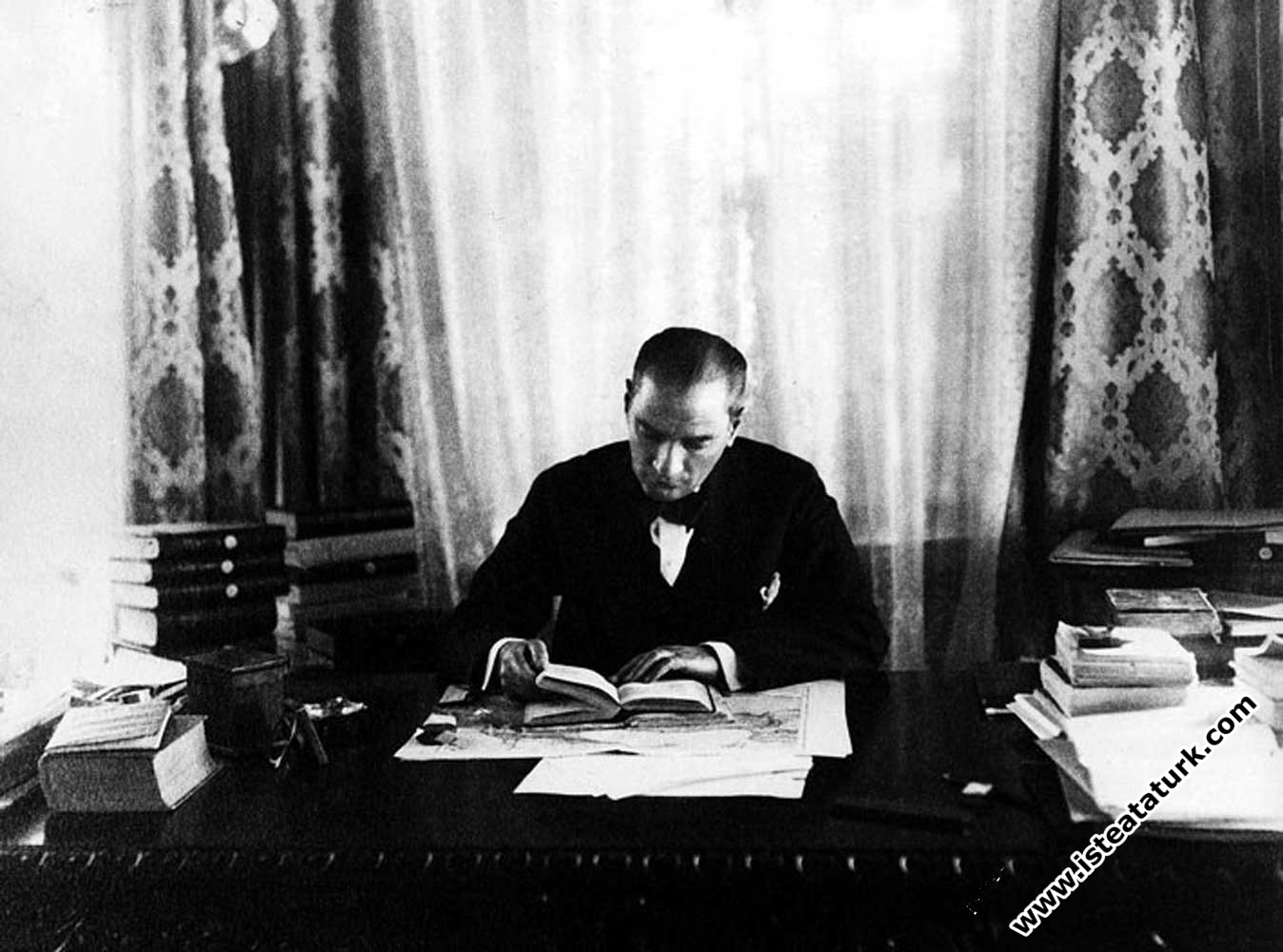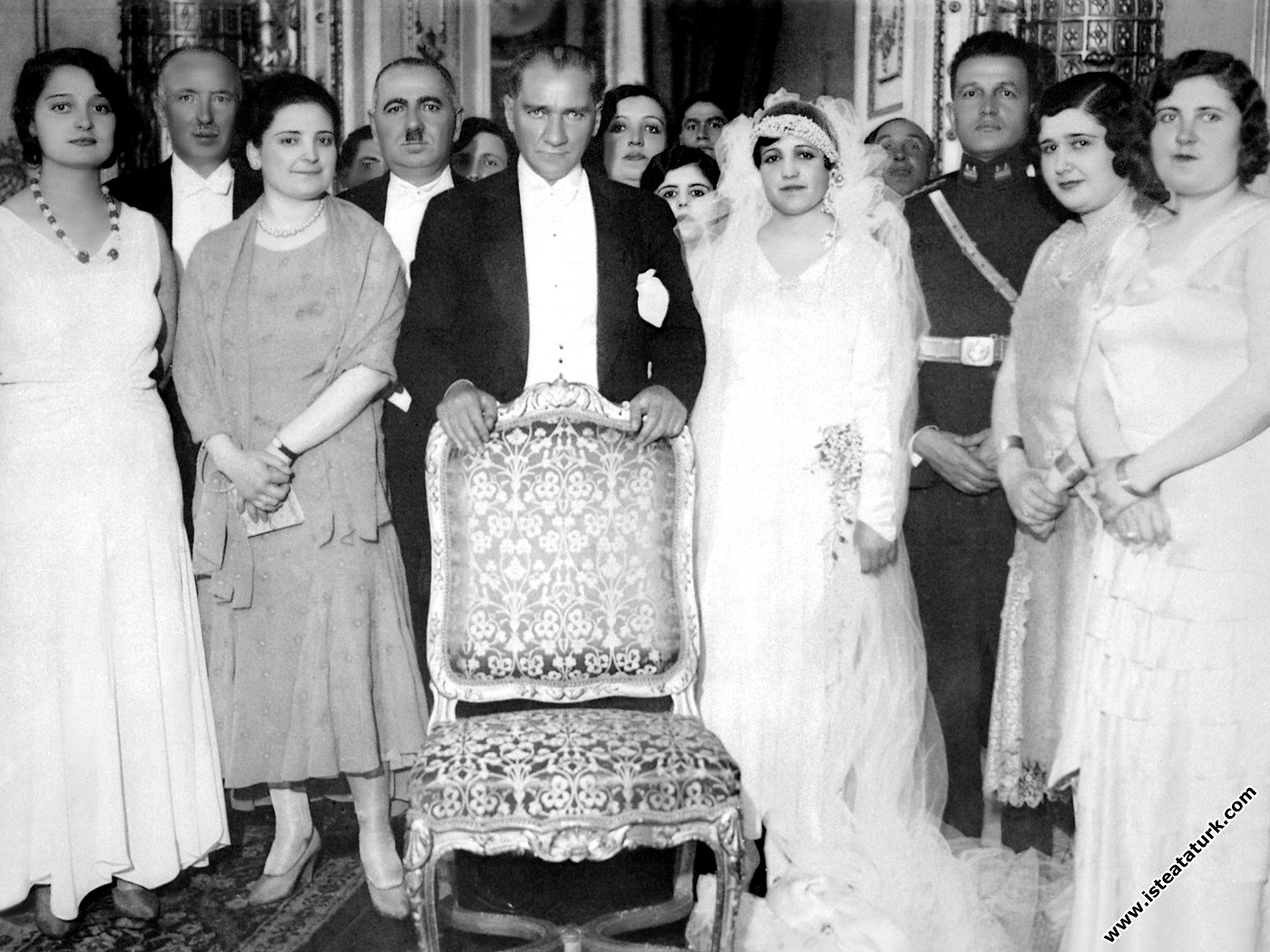
The Universality of Atatürk
Character Size
The Universality of Atatürk
The Universality of Atatürk
The aspect of Atatürk and Atatürkism which has been studied least is the impact they have had on other nations. Apart from some isolated publications no complete studies or interpretations and evaluations based on these studies have been carried out.
Studies on the universality of Atatürk and Atatürkism with emphasis on the third world countries can be carried out by treating each country individually or by taking military, economic, social and political issues collectively for all the third world countries.
Both the theoretical and the applied aspects of Atatürk and Atatürkism should be studied. The study of the theoretical aspect of this subject can be carried out under the following headings:
a) The study and evaluation of the characteristics and elementsof Atatürkism as a new outlook on the world and in which besides national qualities also universal and contemporary qualities are found.
b) The comparison of Atatürkism with other great schools of thought.
c) The place of Atatürkism in the history of philosophy. Together with the theoretical study of the universal aspect of Atatürk and Atatürkism a study concerning the application of the issues listed below can also be carried out :
a) The impact of the Atatürkist philosophy on the nations of the world. Which viewpoints and their applications had impact on which country or group of countries.
b) The influence and impact which the application of Atatürkism in Turkey had on the political events in the world.
c) The impact the War of Independence had on other liberation movements, the importance of being a pioneer.
d) The evaluation of Atatürk and Atatürkism as a set of rules for the future.
Before starting the study concerning the theory or its application, the first inevitable step is undoubtedly the study of how Ata-türk and Atatürkism have been evaluated in the past and at present. To this end the four volume collection titled “Atatürk in English Documets” by the esteemed Bilal Şimşir forms a happy and exemplary beginning. It is also necessary that our libraries acquire foreign publications concerning Atatürk and Atatürkism.
The subject matter is vast, the field is unexplored and is waiting for researchers. Undoubtedly all these studies can be carried out by Turkish scientists. The specific methodology for this research must be made clear. When establishing the methodology, the Atatürkist philosophy in its totality as well as its social, economical political and military elements should be taken into account.
When conducting the studies of the universal aspect we have to take the main event and its elements into consideration together with the dominant characteristics which influenced the application of Atatürkism in Turkey. In all these studies the points of view given below can be considered as basic facts.
Atatürkism in its totality defines the principles, the methods and rules of application for establishing a national government, for modernizing the national government and for keeping the government modern in every age.
The total application in Turkey is formed by three great events: the War of Independence, the radical changes and the achieving of the national sovereignty. One of our radical changes is the obtaining of our national sovereignty through the changing of the political power. But because of their importance and influence it will be useful to consider these events seperately. In order to obtain our national sovereignty it was necessary to change the source of political power, to broaden the base of power and to hand over the power to the people.
All the principles and radical changes form one totality. However, in Atatürkism, instead of fixed ideas and misconceptions, answers which have been found through reason and science in accordance with the conditions and needs are fundamental. We realize more and more that Atatürk created the most valid and realistic system of thought and application bringing together the principles and theradical changes with reason and science while taking the contemporary conditions into consideration.
The three main events of the application of Atatürkism: the War of Independence, the national sovereignty and the radical changes each caused a different impact and reaction. Amongst these our War of Independence had more influence and caused more reactions in other nations than our radical changes and the establishing of our national sovereignty. Our War of Independence gave strength and hope to all oppressed nations which were colonized and occupied. With the War of Independence the Turkish People carried out their historical responsibility towards the oppressed nations.
When, after Vienna, the Turkish retreat had started, the Europeans started to colonize the eastern countries. Three centuries later after the pioneers of the victorious War of Independence and in the atmosphere which had been created, those same countries were able to start their liberation.
Sakarya is the place where the return from Vienna came to a halt. The Battle of Sakarya is not only a turning point and a peak in Turkish history but also in world history. The Westerners first saw the Turks as a threat to themselves and later as an obstacle to their expansion. Domination in the east would not be possible without obliterating the Turkish power. Therefore it would be necessary to throw the Turks first out of Europe and then out of Anatolia. As the politics of the so called eastern problem were getting more successful, it became easier to colonize and occupy the third world countries. When the Turks lost the domination of the Black Sea and the Mediterranean and the Portugese lost the battles in the Pacific Ocean new prospects were opened for occupation and colonization by the west. In world history there are not many field battles which have brought so many changes as the Battle of Sakarya. The proud victors of the First World War experienced, four year after this victory, a defeat such as they had not experienced in centuries. The Westerners suffered deeply because they felt strongly that this defeat would concern their future closely. Consequently in the days following the Victory of 30 August they cried out for help from the Balkans (Romania and Yugoslavia) from the Far East (New Zealand, Australia and India) and from one another so as not to let Thrace be given to the Turks.
With the War of Independence the era of wars of liberation started in the world. The War of Independence rose above our national history and became universal, it became a pioneer, an example to a large part of the third world. The world powers and various politics have wanted to direct and use our War of Independence, which was the pioneer of Wars of Liberation, towards their own goals. Many of these interventions deviated from the purpose of many of these wars of liberation and while rescueing oppressed nations from the influence of one power caused them to fall under the influence of another.
The most important characteristic of the Turkish War of Independence is that it was fought without any influence or contribution by outside powers and that it started the road towards complete independence. At the beginning of the War of Independence, during a period when we were still extremely weak, the Soviet Union claimed certain rights as well as Van and Bitlis, in return for their assistance. This was categorically refused and the Soviets were charged with imperialism. As a war of liberation, the Turkish War of Independence prepared the basis for its own philosophy.
The ways wars of liberation are fought can differ according to the special circumstances of the countries which are fighting these wars, the power centres in the world at the time these wars are fought and the influence of the dominant politics. These particular factors must be taken into consideration when evaluating the wars of liberation.
The basic elements which form the special character of the Turkish liberation movement are: the superior personality of Atatürk, the leader of the movement, the composition of the history and culture of the Turkish people, the Turkish geography and the political situation in the world at the time of the War of Independence.
The people of Turkey, who made the War of Independence into a reality, stem from an era to which four centuries ago their name was given. They represent the civilization of the Asian steppes, they made great contributions to the development of the Islamic civilization. They synthesized the Turkish and Islamic civilizations and, based on this synthesis, they founded one of the longest lasting and greatest empires in the world. Every time we study the order of the government of this empire and the superiority of the composition of its civilization, its greatness becomes a little more apparent. The Turkish people established close to 200 states. The accumulation of culture, the traditions and mental make-up of this nation will undoubtedly be different from a society which becomes a state, a nation for the first time.
The leaders of the liberation movement form another basic element which shaped the movement. Atatürk was the first leader of the wars of liberation. He is a genius who was brought forth by the great accumulation of history and by the Turkish cultural environment. Its undoubtedly difficult to find this greatness in the other leaders of the wars of liberation. However, the other leaders of the wars of liberation had Atatürk as an example in front of them. Atatürk, on the other hand, no such example. When we study the wars of liberation it is important that we evaluate the leader because of his influence on the shaping of the movement.
One of the most important elements which influence all military, political, economic and social events is undoubtedly the geography. We have to see the geography in all its aspects together with the climate as an inescapable fact. Therefore, the geography of the countries which fight wars of liberation as an influence which shapes the events, has to be taken as part of the study. One of the characteristics of the Turkish geography is that it forms a shield for the east against the west.
Because of its geographical location Turkey performs not only the duty of a shield between east and west but also of a shield between influences coming from all directions and the area behind it. The geographical location of Turkey forms the crossroads and the crucial area of all ambitious endeavours. This location has a place and importance in all the struggles in the world. It has contact and connections with all the cultures and all the centres of power which have been formed in the world. Only on condition that it is powerful in every field can the people live here. Each country which is struggling for its liberation has to be evaluated by also taking into account its geographical conditions.
Other points which also have to be considered and investigated are the political situation in the world at the time when the countries are struggling for freemdom, the position of the sovereign powers in the world and the political trends and the directions they are taking. Undoubtedly the world powers in the 1960’s and the world powers in the 1950’s and the activities of the political trends are not the same. If we take the points mentioned above into account when investigating the universal effects of Atatürk and Atatürkism, it appears that every country tried to evaluate Atatürkism according to their own conditions and needs and tried to profit from this theory and its applications accordingly.
There are also countries and thinkers who consider making use of only one aspect of Atatürkism as required by their own conditions. For instance thinkers of some South American countries are thinking of making use of Atatürk’s efforts establish a nation in order to become a nation, a state, a national state. In their eyes Atatürk is the fouder of national governments, the creator of states. Some South African thinkers, fearing that their own cultures might be completely destroyed, do not accept the idea of Westernization in Atatürkism but only defend its principle of modernization.
To see Atatürk as the leader of modernization and Atatürkism as a method for modernization and the bringing of this system of thought in its totality to maturity should not be seen as a simple matter. . The principles form the basis of this system of thoughts and their application constitute the fundamental tasks of our age. Today it is possible to be in harmony with our age with the help of these principles. In fact Atatürkism is a system of thought whose principle is that reason and science show the way and that the results of reason and science should be used according to the conditions and needs of our age.
After the second world war Atatürkism gained even more exemplary value and Atatürk became a person of great esteem in the eyes of the world. This was a result of the conditions at the end of the second world war as well as of the fact that enough time had passed for the example of Atatürk to settle and spread among the oppressed countries which were occupied and colonized. The first effect Atatürk had on the oppressed people was when he gave the Westerners a taste of defeat in the War of Independence and the Moslims identified themselves especially with Atatürk in the role of ghazi. The abolishment of the caliphate and the radical changes which followed the War of Independence were difficult to understand for these societies and were goals which were difficult to reach. At this point we see that the devotion to Atatürkism had come to a stand-still due to propaganda based on errors which had been spread by the westerners. However, time brought Atatürk and Atatürkism to new heights and secured the spreading of Atatürkism.
Battles gain great value because of their military merit but also because of their impact on the future. The War of Independence carries, undoubtedly great value from the military point of view. But as important as the military value are the fast changes which came about as a result of the War. War opens the road to the goal, widens the road and secures it. The War of Independence forms the first unavoidable step towards our independence, sovereignty, freedom our becoming part of contemporary civilization and the establishment of our national state. If, however the radical changes had not followed the War of Independence, it would not have been possible to establish our national state and to become a part of modern civilization. With the War of Independence it became possible to establish an independent national state, however, the radical changes enabled us to become part of contemporary civilization. The War of Independence is the war which marks the point where the Ottoman Empire, which had brought the synthesis of the Turkish-Islamic civilization to great heights, had lost its power of renovation and had deteriorated. The War of Independence and the radical changes aim at forming a new synthesis of the Turkish-Islamic synthesized culture and western culture. The redical changes opened the road towards a new synthesis with western civilization. For this reason we see Atatürkism in its totality as a new civilization. It is the great responsibility of Turkish scientist and intellectuals to examine the impact and influence Ataturkism had on other nations and to explain all aspects and characteristics of Ataturkism as a philosophy to the world. It will be possible to present Atatürk and Ataturkism more cleary and to spread the philosophy, to ensure the same impact on the world as they had on Turkey, to create a more humane, a more dignified society, a society which works towards peace in the world. The basic element; of our power will be formed when Atatürkism has settled and lives in the Turkish people and in our institutions and thus the lack of balance which exists between ourselves and the developed nations will be removed and as our geographical position denies us the right of being a weak nation Atatürkism will give us indispensable power. Because Atatürkism shows people of every era the ways of becoming modern.
Suat İlhan
Source: ATATÜRK ARAŞTIRMA MERKEZİ DERGİSİ, Sayı 7, Cilt: III, Kasım 1986
